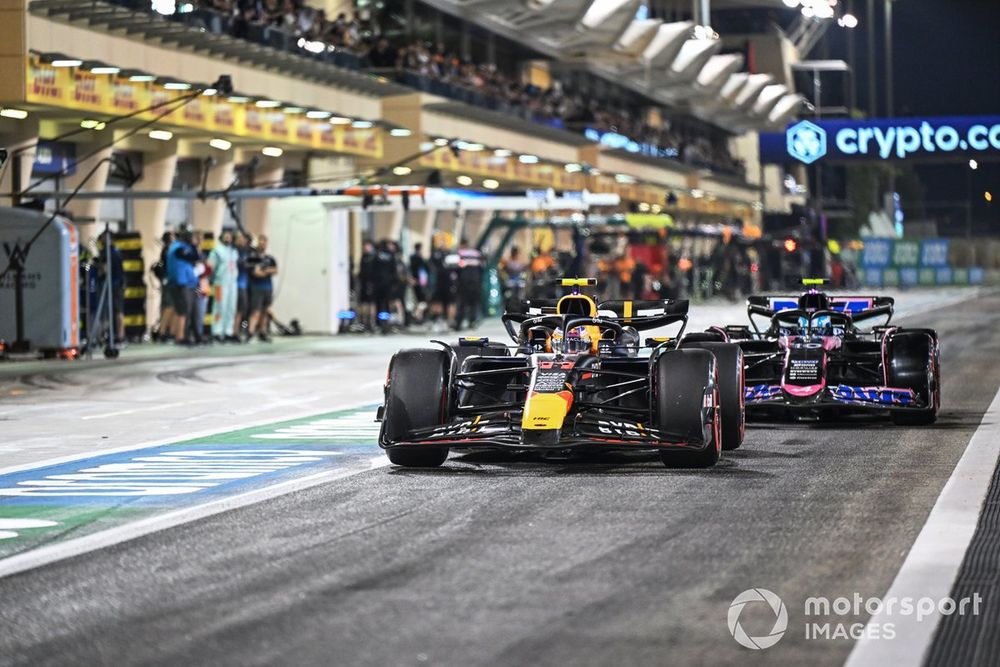Since last season, the FIA has been making efforts to avoid dangerous scenarios of drivers coming across slow-moving cars while on flat-out qualifying laps.
Various ideas have been tried out, with an attempt at the Bahrain GP to force drivers to keep to a maximum delta time at all marshalling posts having been abandoned after it proved troublesome during trials in practice.
The solution used in Bahrain – there being a maximum time for a whole lap once cars are out of the pits – triggers drivers to try to find gaps in the pitlane, which can be a cause of trouble and complaints.
Sometimes drivers find themselves getting blocked when coming out of their garage, or they are forced to overtake on their way down the pitlane.
While such scenarios are not ideal, F1 drivers think it is much better way of doing things than risking extra danger if cars dawdle in the middle of the track at the final corners to find some clear air.
Speaking about the situation, world champion Max Verstappen said: “I think this is the safest way to go about it. I mean, it’s probably not ideal, but I prefer that the cars are stopping in the pitlane than on the straight, or in the last corner.”
Ferrari’s Charles Leclerc added: “I think the FIA came up with a new system which I think wasn’t exactly what we wanted. So we all asked to come back to the system of last year.
“It’s an ongoing process where we try to find the best solution. But as Max said, I think you have to slow down at one point and it’s much better to do it in the pitlane than on track. So I think it’s the best solution we have at the moment.”
Sergio Perez, Red Bull Racing RB20 in the pit lane
Photo by: Simon Galloway / Motorsport Images
McLaren Lando Norris said the key thing that had to be addressed was avoiding cars going slow at the final corner, which the current system does do.
“I think is actually a pretty decent system and it kind of forces everyone to stay in order a little bit more,” he said.
“I think there’s some more trick ones, like the one that they tried to introduce [in Bahrain], where if they’re trying to avoid cars going slowly, it doesn’t. And I think this system avoids cars going slower by the final sector.”
Norris reckoned that it was impossible to come up with a solution that avoids any risk of trouble, so it was really a case of going for the right compromise.
“You can still go slow, because you can still gain loads on…
Click Here to Read the Full Original Article at Motorsport.com – Formula 1 – Stories…

